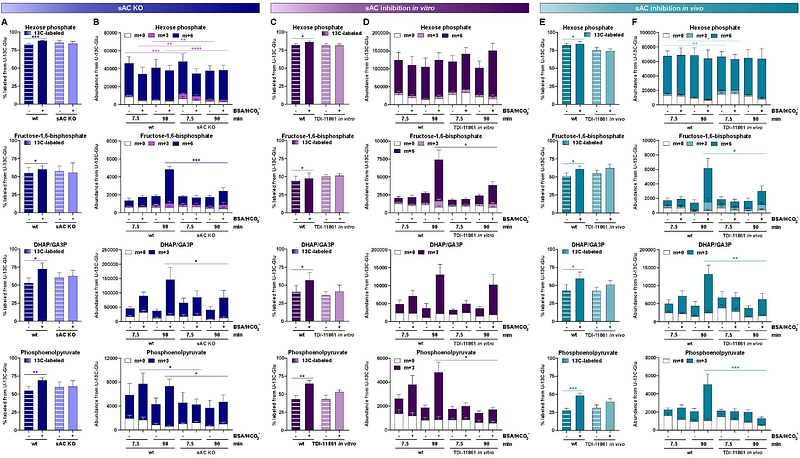Sperm meet the elevated energy demands to attain fertilization competence by increasing flux through aldolase

Sperm meet the elevated energy demands to attain fertilization competence by increasing flux through aldolase
Violante, S.; Kyaw, A.; Kouatli, L.; Paladugu, K.; Apostolakis, L.; Jenks, M.; Johnson, A.; Sheldon, R.; Schilmiller, A.; Visconti, P.; Cross, J.; Levin, L.; Buck, J.; Balbach, M.
AbstractPrior to ejaculation, sperm are stored in the epididymis in a resting metabolic state. Upon ejaculation, sperm must alter their metabolism to generate the energy needed to support the motility and maturation process known as capacitation to reach and fertilize the oocyte. How sperm regulate the capacitation-induced increase in carbon flux is unknown. Here, we use 13C stable isotope labeling to follow glucose metabolism through sperm central carbon metabolic network before and after sperm activation. We identify regulatory steps which sperm use to alter their metabolic state from resting to highly active. In activated sperm, glucose flux through glycolysis is increased at the expense of the pentose phosphate pathway to increase energy yield. Increased glycolytic activity seems to be due to capacitation-induced stimulation of flux through aldolase. In the mitochondria-containing midpiece, glycolytically generated pyruvate feeds the TCA cycle to further maximize energy yield via oxidative phosphorylation. In the mitochondria-free principal piece of the tail, pyruvate produced from glycolysis is reduced to lactate by lactate dehydrogenase. Reduction to lactate regenerates oxidized NAD+ ensuring a sufficient supply to support glycolysis. The resultant lactate is at least partially secreted. Finally, we find evidence that there is an as yet unknown endogenous source of energy in sperm feeding the upregulation of TCA cycle intermediates. These studies provide the most complete picture of the metabolic shift which occurs in capacitating sperm.